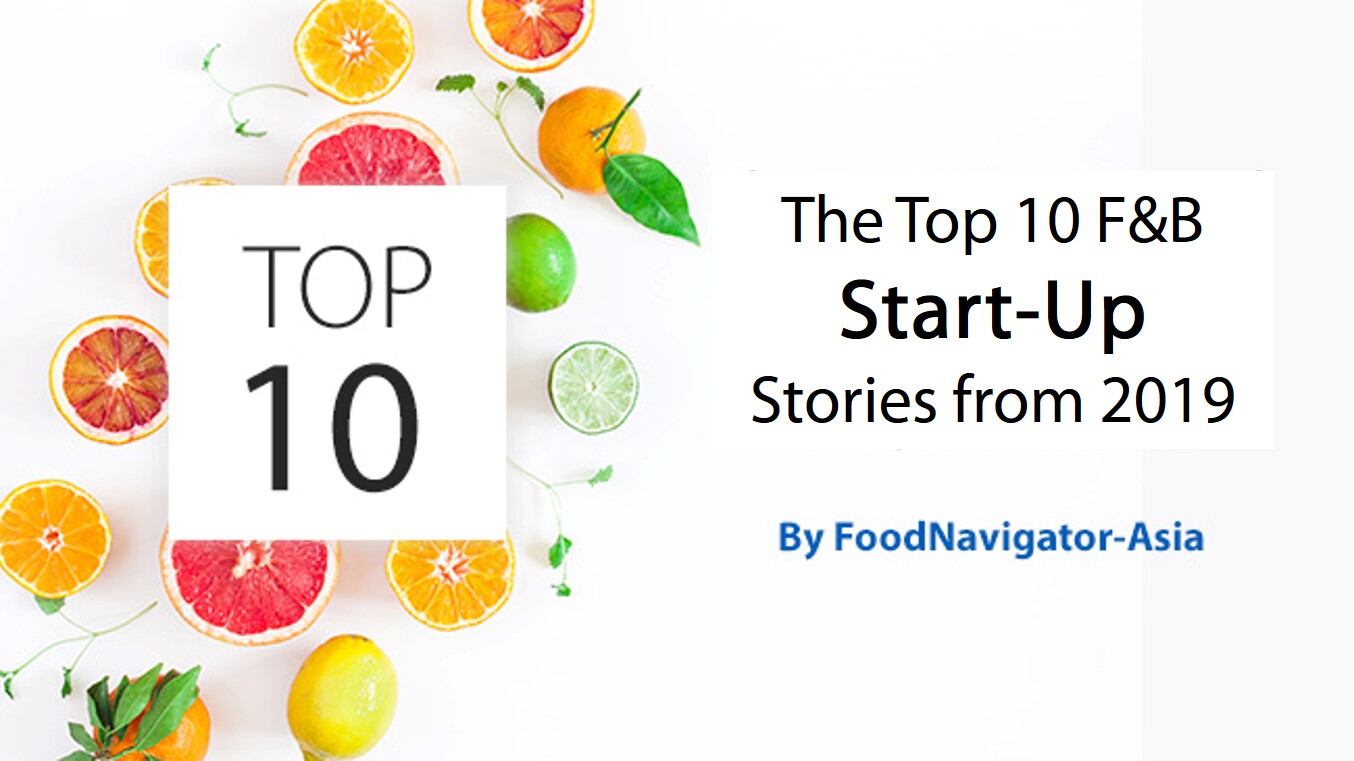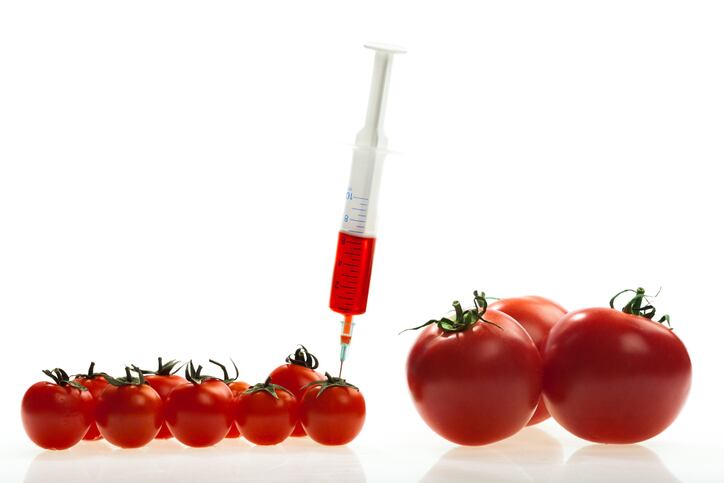The mojo behind MOJO: Coca-Cola’s recently acquired kombucha brand shares secrets of success
Australian firm MOJO Kombucha’s pledge to authenticity and no artificial sweeteners are what have helped it grow from a small family business to becoming a major name in the country, and recently being acquired by beverage giant Coca-Cola, according to a top company official.
Speaking at the recent Naturally Good Business Summit 2019 in Sydney, Andrew Buttery, Director of Sales and Marketing at Organic and Raw Trading Co. which owns the MOJO brand, said that the company was a pioneer in the country’s kombucha category, and had evolved from ‘very humble beginnings’.
“[MOJO co-founder and CEO] Anthony Crabb started the company out of a shed in his backyard, and worked with microbiologists to scale up development and maintain the kombucha consistency from one batch to another,” said Buttery.
MOJO started off as a more niche, specialty brand, focusing in the health and organic channels before making the move to break into mainstream grocery.
Turmeric take-off: How Malaysian health drink hit 80% sales growth in under a year powered by local focus
Turmeric-ginger beverage brand Jiang Yeah Yeah (Grandpa Ginger) has hit sales growth of some 80% across nine months after going viral in Malaysia – and it has plans to go much further.
The company’s main focus after developing the Jiang Yeah Yeah brand was to increase local presence, mainly by capitalising on multiple events, trade shows, exhibitions and even morning and night markets in the country.
“We are the first in the world to develop this turmeric-ginger health drink with multiple benefits, especially for joints and arteries, and we wanted to focus on the local market first before looking at the international scene,” said Wendy Lim, Director at Wen Ling Beauty and Healthy, the firm that owns and operates the Jiang Yeah Yeah brand.
Though she admitted that pick-up was slower when the product was first launched in September last year, face-to-face approach has since worked well for the company since early this year, especially considering its relatively high price point at RM128 (US$30.6) per 750ml bottle.
Cell-based seafood: First ASEAN clean meat company Shiok Meats has its eye on APAC and US markets
South East Asia’s first cell-based clean meat company, Shiok Meats, is aiming to bring animal-, health- and environment-friendly seafood products to APAC and the United States in the name of sustainability.
The firm says the way meats and seafood are being produced and consumed currently is unsustainable, claiming there is misrepresentation, contamination, overuse of antibiotics and hormones.
Shiok Meats CEO and co-founder Dr Sandhya Sriram told FoodNavigator-Asia: “The need for disruption in the food and meat industry is crucial and Shiok Meats is disrupting the seafood industry by growing seafood in the lab.
“Shiok Meats is a cell-based clean meat company, exclusively working on seafood. [We are] the first cell-based meat company in Singapore and South East Asia, and we employ cellular agriculture to grow seafood meat in the laboratory using cells instead of animals.
Next a2 milk? Aussie ‘raw milk’ firm Made By Cow banks on long product shelf life for Asia exports
Australian cold-pressed raw milk company Made By Cow is banking on the long shelf life of its products to support its foreign export expansion plans into Asia.
According to Made By Cow CEO Wade Porter, the firm’s milk has a shelf life of six weeks which is long enough to support exports to most countries in Asia, as opposed to regular milk which generally has a 21-day shelf life.
“This is because we pasteurize the milk after it is bottled, whereas most other milk companies will pasteurise in big batches and then do the bottling, giving them a three-week shelf-life,” Porter said to FoodNavigator-Asia.
“We’re talking to companies in various countries about exporting later this year – the priorities will be countries with similar regulatory requirements such as Singapore, Thailand, Indonesia and the like.”
World-first plant-based salt: South Korean firm utilises sea-based crop to develop product range
South Korean food technology company Phyto Corporation has developed a range of unique products all based on its research into a single plant, the seawater-grown crop Salicornia.
Salicornia belongs to a family of salt-accumulating plants called halophytes, which means that it is by nature high in salt content. It grows on saline land near seasides ‘anywhere in the world’, but has not been used as a food resource before this as it was generally found to be ‘too salty to eat’ previously.
“Salicornia is the only edible halophyte anywhere - this must not be confused with seaweed, which grows inside the sea itself and does not accumulate salt,” Phyto Corporation Founder and CEO Duke Kim told FoodNavigator-Asia.
“My idea when establishing Phyto Corporation was that via our (now-patented) desalination technologies, we would be able to develop a 100% plant-based salt by separating it from Slicornia, as well as make a new superfood with the desalted remaining part to solve global food shortage.”
Sticker fixer: How edible Malaysian fruit sticker StixFresh slows ripening to boost shelf life
A Malaysian-invented fruit sticker, called StixFresh, claims to prolong the shelf life and freshness of certain fruits by slowing ripening, as well as reduce microbe attacks.
According to the company’s website: “[The] materials used in Stixfresh stickers are 100% natural and fully approved.
“In fact, Stixfresh stickers are so safe you can eat them.”
The materials in question are a mixture of ionised sodium chloride and beeswax – these delay the fruits’ ripening process by working to remove the hormone ethylene, which causes ripening.
The ionised sodium chloride also releases energy slowly and gradually, which retards microbial activity to prevent attacks and diseases.
The sticker was initially invented to target mangoes, but its use was later extended to other fruits with similar size, texture and vulnerabilities.
'Pure naked goodness': Singapore brand Udders seeks to bring wellness trend to ice cream
Iconic Singapore ice cream brand Udders is looking to conquer the health and wellness market with its new healthy ice cream range: Nuude.
The firm claims the new brand is ‘natural, fresh, and clean label’.
“With recent trends towards healthier living, we wanted to use our expertise and creativity to develop a new range of lower-sugar and lower-calorie ice creams for a different segment of customers, who are health-conscious and more deliberate about food choices,” said Wong Peck Lin,
Udders Founder and Chief Milkmaid.
“Nuude is about … naked goodness. In fact, that is the tagline we have chosen for the brand. It describes going back to using simple, basic, clean, natural ingredients for a pure-tasting product, with no artificiality and no nasties.
‘Asia’s new supernut’: Mount Mayon targets the healthy gourmet market with its pili nut processing expertise
Philippines pili nut specialist store Mount Mayon is banking on its expertise in handling the ‘most difficult’ nut to process, as well as pili’s multiple health properties to fuel its expansion into the global healthy gourmet market.
According to company co-founder Dr James Costello, “Our secret is in the processing of the nut.”
“The pili nut is the most difficult nut to process, and it takes a couple of days at a time for processing,” he told FoodNavigator-Asia.
Mount Mayon’s pili nut processing is carried out at its new Subic Superfood factory and kitchen complex, and its unique technique is a 17-step sprouting and slo-dry process.
“The nuts are not cheap due to the complexity and length of the process, which means that the price narrows our target market. That said, we are looking at a more niche market [and] positioning our pili nuts as a ‘healthy gourmet’ item,” added Dr Costello.
Built for scalability: New Zealand’s plant-based meat firm Sunfed enters next phase of growth
New Zealand plant-based meat company Sunfed Meats has entered its next phase of growth with the launching of its Chicken Free Chicken into Australia, and is banking on its food engineering capabilities and unique product offering to support its scale-up.
According to Sunfed Founder and CEO Shama Sukul Lee, one of the company’s areas of focus from the very beginning has been to ensure that everything was built with scalability in mind.
“Phase One for us after lots of deep R&D was to launch and commercialise Chicken Free Chicken in New Zealand last year, as New Zealand is a really good test bed for new products, sort of a microcosm of the big macrocosm food market,” she told FoodNavigator-Asia.
“Now, some 12 months on, we have completed Phase Two, where we scaled up our proprietary technology, focusing on scalability and manufacturability. This enabled us to enter Australia and launch nationwide, as there is a much larger market there by at least five times.
Microalgae’s major opportunity for alternative protein product development – Sophie’s Kitchen
Plant-based seafood firm Sophie’s Kitchen is now producing food-grade protein from microalgae, with firm confident it can become a long-term and more sustainable solution to animal and traditional plant-based proteins.
Eugene Wang, founder and CEO of Sophie’s Kitchen told FoodNavigator-Asia, “Animal protein is not sustainable in feeding 10 billion people on this planet. Plant-based protein are sustainable now, but not forever.”
Quoting pea protein as an example, “Currently, we are using pea protein in our foods. Many plant-based food companies are also using pea.
“Where do you get these extra supplies? More farming which also means some form of deforestation.”
“What we need are technologies with even higher efficiencies so we won't pollute this beautiful planet.”





